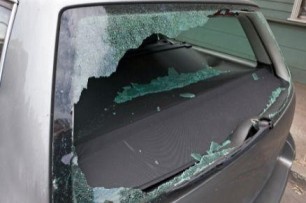Blog Details - Magma HDI

Does your car insurance policy cover damages due to vandalism 30th June 2022
There are various covers that the insurance companies provide depending upon factors such as the location, the type of car, the engine model, the engine capacity, etc. These car insurance covers are provided for various situations such as natural calamities, theft, accident, etc. One such protection that always seems ambiguous is the insurance against vandalism. If you are contemplating whether to take a vandalism cover or not, this article might help you by giving you a better insight into destruction, the claim, the benefits, and the demerits of the same.
The first thing to understand is that vandalism covers can be costly. As the severity of vandalism cannot be estimated beforehand, and the likeliness cannot be predicted, the covers can charge extra.
You can claim vandalism only if you have a comprehensive cover. Now, what is a comprehensive cover? Let’s understand the two main kinds of covers provided by insurance companies.
1. A third-party plan:
This policy is a safety net for the policyholder against any liabilities that may arise due to an accident or collision resulting in an accident of a third person or damage to their property.
If in case of death of the third person, the insurance company covers the compensation for the same. The premium on these is lower compared to a comprehensive car insurance plan.
2. A comprehensive plan:
Not only does it include third-party coverage, but it also takes care of personal damage. Comprehensive car insurance protects against any legal obligations arising from third-party interference and covers any damage caused to your car.
This cover also has the added covers on natural and human disasters such as riots and vandalism. With these things in mind, you can rest assured that your car will be fully taken care of by the insurance company.
Let’s first understand what vandalism is:
Vandalism is an act of destruction performed intentionally and with the intent of malice. In this case, we are talking about vandalism against vehicles, which can have different forms.
1. Damage to the car body:
Spray paint, scratches, and graffiti are a few ways to damage the car’s body that can be considered vandalism. More noticeable scratches and damage will require a new paint job and other repairs.
2. Broken parts:
Broken windows, glass panels, or lights must be changed entirely, costing tens of thousands in damage.
3. Slashed tyres and stolen parts:
Parts of your car, such as the side-view mirror, company logo, tyres, wiper blades, etc., can cost significant money. People steal these and sell them for the original prices, which are relatively more expensive than the knock-off goods.
Vandalism claims can be time-consuming and challenging to process as there is rarely a proof. So, it is best to inform your insurers as soon as possible and start the process. But remember that vandalism claims are only valid if there were relevant covers in your policy.
As discussed above, car insurances pay for vandalism only if you have comprehensive coverage added to collision coverage. Comprehensive coverage does not include any stolen goods or personal items from within the car, but it can cover the expenses for the damages incurred.
Sometimes, a police intervention might be needed as vandalism is considered a crime. Filing a complaint with your insurer increases the chances of damage recovery through the claim. If a police officer does not visit the crime scene, then the chances are that they will call you to give a detailed report of the crime. Do not forget to miss out on any points, as the better the details of the crime; the better are your chances of claiming your insurance.
Now you know why investing in a comprehensive car insurance policy is best. You can get the best protection against calamities, human-induced hazards or otherwise.
Click HERE to find out more about comprehensive car insurance plans.
Disclaimer: The information provided above is for illustrative purposes only. To get more details, please refer to policy wordings and prospectus before purchasing a policy.

